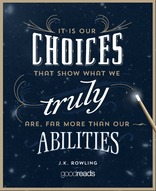It’s been interesting to watch how many Conservative and Liberal
sources have reversed roles in the past year or so, especially regarding how
people should act toward the office or person of the president and what a
president should or should not be allowed to do, but in many other areas as
well. When you exclude the far extremes and boil the rest down, it’s the same
underlying reactions and rhetoric on both sides and it’s not getting us
anywhere. Not anywhere good, anyway.
For far too long, ridicule,
fear-mongering, name-calling, and shaming have been the currency of our
discourse and we need a different way to engage. This certainly isn’t to say
there isn’t a right and wrong or that certain policies aren’t harmful or that
we shouldn’t speak up for what we believe. But when we focus on one person or
one group and make them the target of our anger and fear to the point that we
are obsessed with constantly tearing them down, calling them out, and mocking
them over every word, breath, and tweet, we lose sight of our own values.
My issues with the current head of the U.S. Government
Executive branch go far beyond political policy, into his treatment of women
and multiple marginalized and vulnerable communities. But if I just fling my
most potent insults out into the universe every time he makes another headline,
then I have a problem. If I respond to him with the type of words or behavior that
I find so harmful and problematic in him – whether online or even just in my
own mind – then I’ve compromised many of my personal values (like kindness and
integrity) and I’ve made myself a hypocrite. And if people who say their values
include integrity, strong morals, Godly character, and the like were/are saying and posting awful, degrading things about our previous president, they also have
an issue.
To elaborate on the wisdom of Dumbledore: It’s the choices
we make in our own words, actions, attitudes, and behavior that tell us who we
are. The way we respond to someone we disagree with or dislike says much more
about us than it does about them.
We may hate what someone else has done, finding it truly
immoral and unconscionable. But if we resort to reactions that go against our
values, what are we doing? I know and love people on both sides of many issues
who are caring, passionate people with strong feelings about who and what they
think is best for our country. And I keep wondering what could happen if we
turned the focus away from people and groups in the spotlight, at least to some
degree, and looked more to answer questions like: Who am I? What are my values?
What can I do to make sure that my thoughts, words, and deeds are in alignment
with those values, even when what I want to let my anger and frustration boil
over in insults and contempt?
I’m not saying we should do nothing, that we shouldn’t speak
out or protest or disagree. What I’m saying is that we must recover our ability
to stay true to our values without degrading, shaming, mocking, name-calling,
and the like (unless those things are your values, then I guess you’re fine). Most of us may be out of practice, but taking
a little while to consider what responses are in line with the values we claim
is a skill we can learn (or re-learn) if we put our minds to it. We can look away,
at least for a few moments, from a polarizing figure to the policy, principle,
or action we a concerned about and then look for constructive ways to respond.
Yes, there may be times we must say which person or what group we are
disagreeing with or responding to, but sometimes that isn’t necessary. I can
support and promote organizations that work with immigrants and refugees, call
my representatives to promote gun sense policies, and donate to natural disaster
relief efforts, and I can even tell my friends about this, without ever
mentioning or deriding any political figure or group.
We don’t have to stay caught in a cycle that has us going
round and round, taking turns in outrage and ridicule depending on which side
holds power. Most of us aren’t out there in the extremes and we don’t have to
gravitate toward them just to prove a point or let everyone know what we
believe. Most of us are here, in the messy in-between, and we can do better.
